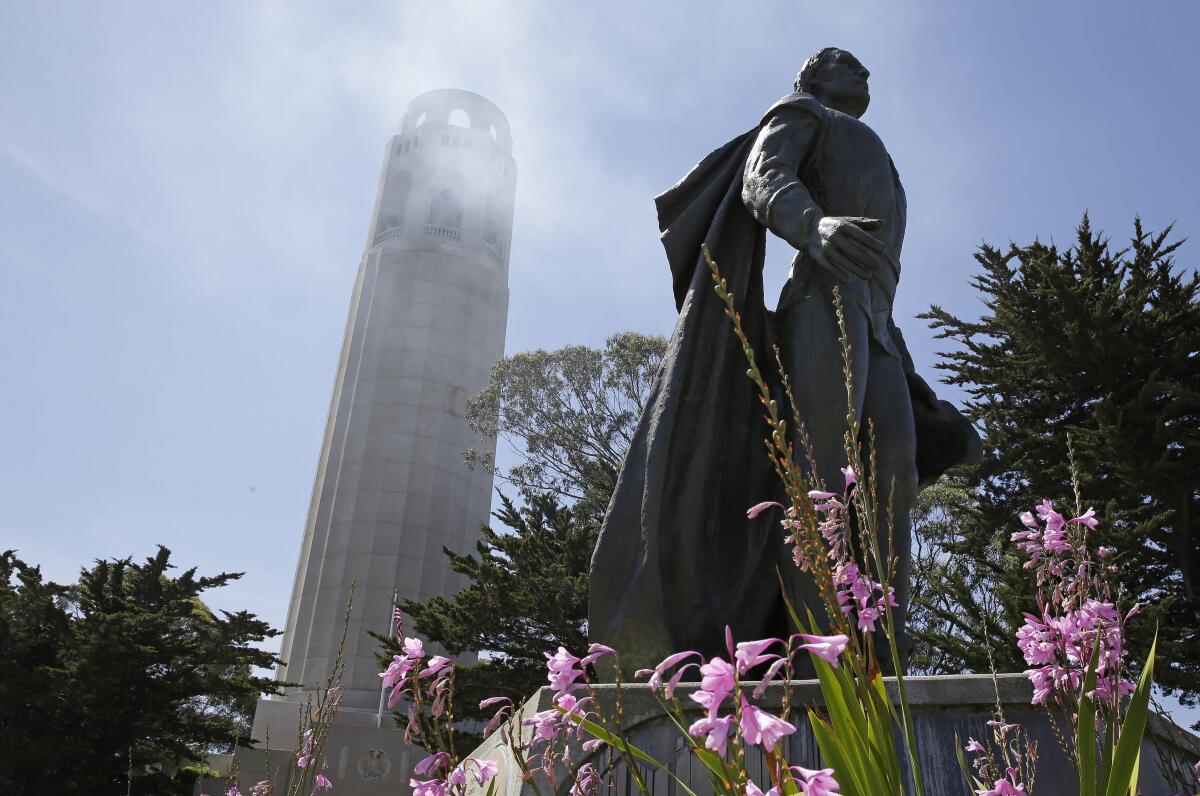Letters to the Editor: Why it’s not enough to ditch Columbus Day for Indigenous Peoples Day

- Share via
To the editor: The bias mentioned in the op-ed article about Christopher Columbus’ anti-Muslim animus is not unique to one group in American history.
While it is commendable to reject Columbus Day and rename it something that honors oppressed peoples, focusing solely on one injustice falls short of recognizing all injustices perpetrated against many different groups throughout U.S. history.
American history is replete with such injustices, from the original sins against Native Americans to slavery, anti-immigrant violence, lynchings, the internment of Japanese Americans, turning back Jews escaping from Nazi Germany, anti-Asian pandemic-era violence, discrimination against the LGBTQ community and more.
Therefore, it would make more sense to have an October holiday that provides us an opportunity to reflect on all injustices in U.S. history, not just one. Perhaps such a holiday should be named “Acknowledgment Day” to be a day of atonement for transgressions against all wronged people in American history.
Mark Henderson, Dana Point
..
To the editor: Yale historian Alan Mikhail could have added to his article the fact that Hernán Cortés’ men, veterans of the recent conquest of Spain from the Moors, shouted “Santiago Matamoros” as they went into battle against Indigenous forces in what would become New Spain.
St. James was the patron saint of the Spanish. “Santiago Matamoros” referred to St. James the “Moor killer,” and Matamoros became the unlikely name of several towns in Mexico.
Michael Hittleman, Los Angeles
..
To the editor: By shoehorning Columbus’ life and times into our 21st century perspectives on race and ethnicity, Mikhail applies a narrow ideological lens to the complex issue of historical mind-sets and linguistics.
The Spanish language was enriched by seven centuries of Muslim interaction in the Iberian peninsula. This left its mark on thousands of words.
Check out any Spanish-language dictionary: Around alfanje — the scimitar mentioned in the article — I counted more than 30 derived from Arabic with the prefix “al”: alcoba, alcohol, alfil, alfombra, alforja, algebra, aljibe, almacén, almohada, alcaucil and alcalde.
Columbus used the words of his time — Italian and Spanish — to describe new things. And moro (Moor) was not, and still isn’t, a pejorative noun.
María Elena de las Carreras, Northridge
More to Read
A cure for the common opinion
Get thought-provoking perspectives with our weekly newsletter.
You may occasionally receive promotional content from the Los Angeles Times.









